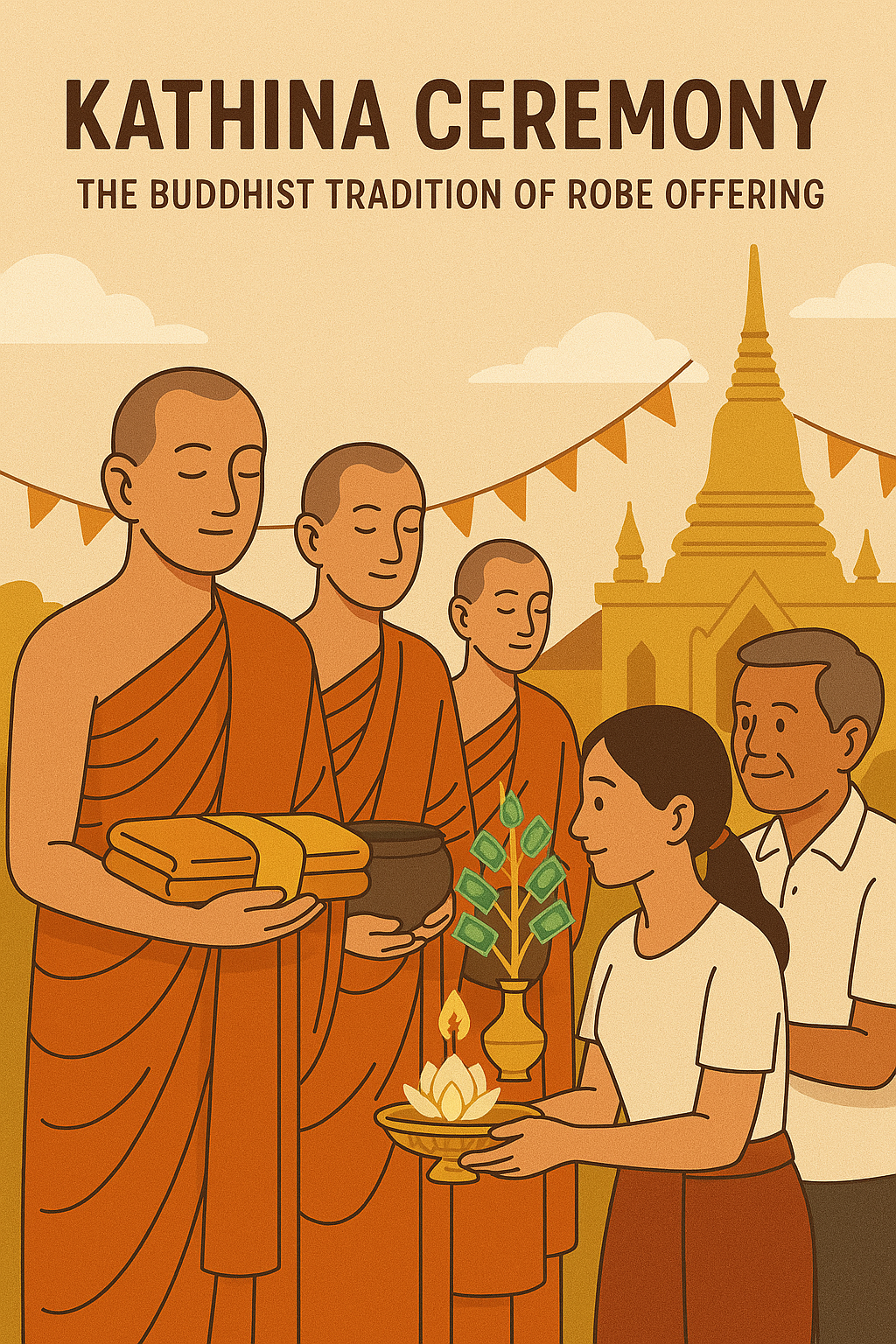An intimate journey into the sacred waters of Mondulkiri’s highland communities
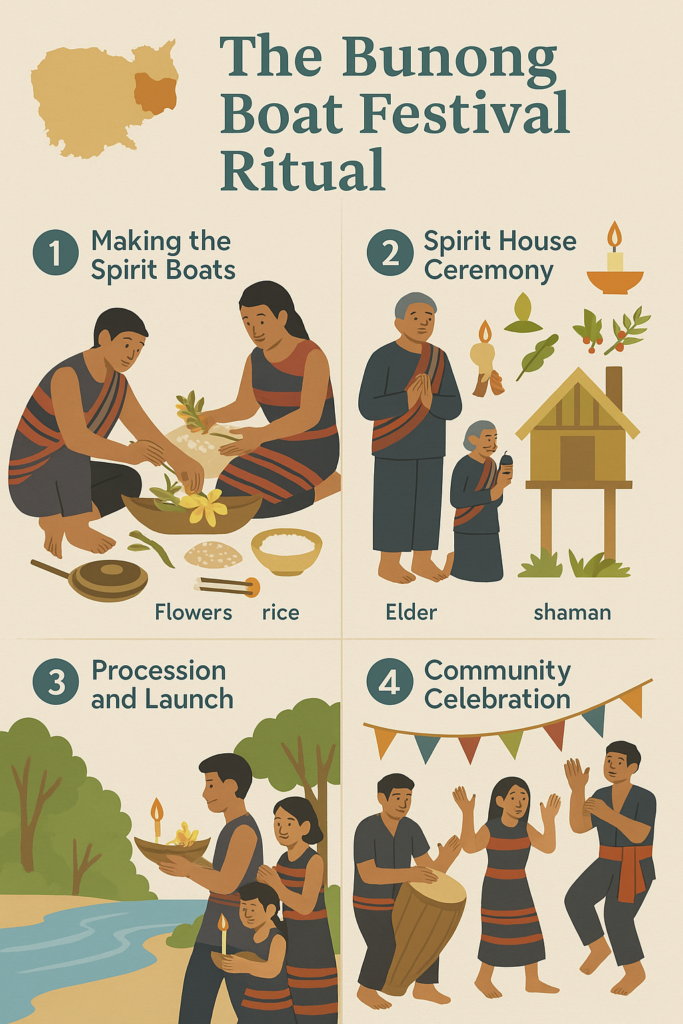
Nestled deep in the lush highlands of Mondulkiri Province, the Bunong people (also spelled Phnong) live in harmony with nature, sustaining traditions passed down for generations. Among their most sacred celebrations is a unique and deeply spiritual event: The Boat Festival, a ritual unlike the grand Water Festival seen in lowland Cambodia.
This festival is not about racing or pageantry — it’s a solemn offering to the spirits of water and ancestors, a communal act of gratitude, renewal, and protection.
Who Are the Bunong People?

The Bunong are one of Cambodia’s largest indigenous groups, known for their animist beliefs, spiritual forest guardians, and deep connection with elephants and the natural world. Their villages are primarily located in Mondulkiri, near the border with Vietnam.
They live by a code of spiritual reciprocity: every tree, river, and mountain has a guardian spirit. Their festivals reflect this sacred relationship.
The Meaning Behind the Boat Festival
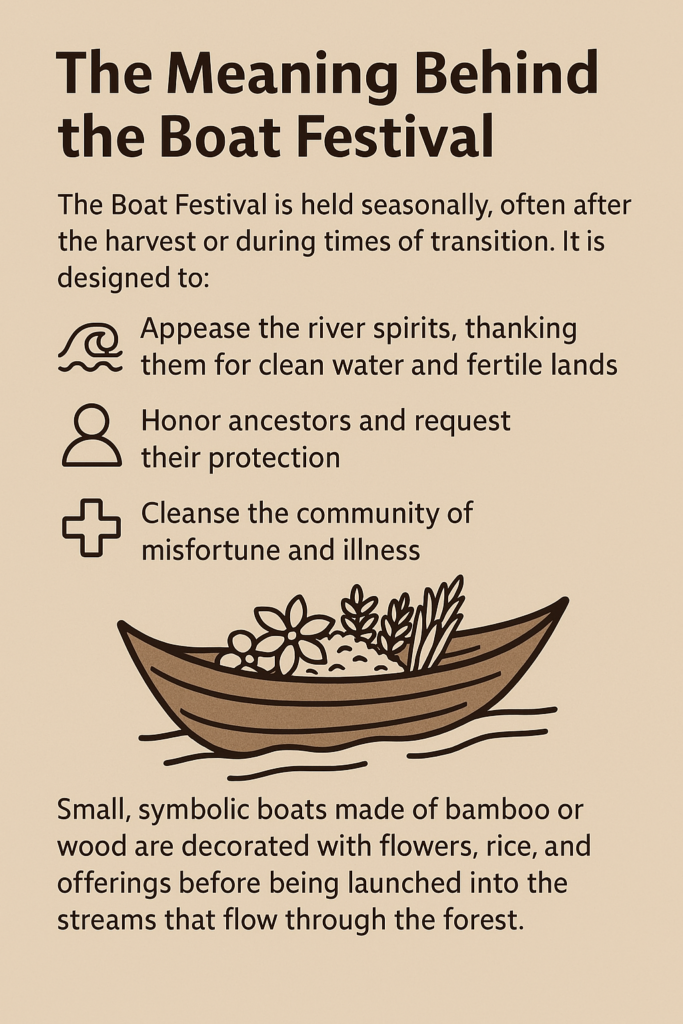
The Boat Festival is held seasonally, often after the harvest or during times of transition. It is designed to:
- Appease the river spirits, thanking them for clean water and fertile lands
- Honor ancestors and request their protection
- Cleanse the community of misfortune and illness
Small, symbolic boats made of bamboo or wood are decorated with flowers, rice, and offerings before being launched into the streams that flow through the forest.
Ritual Highlights
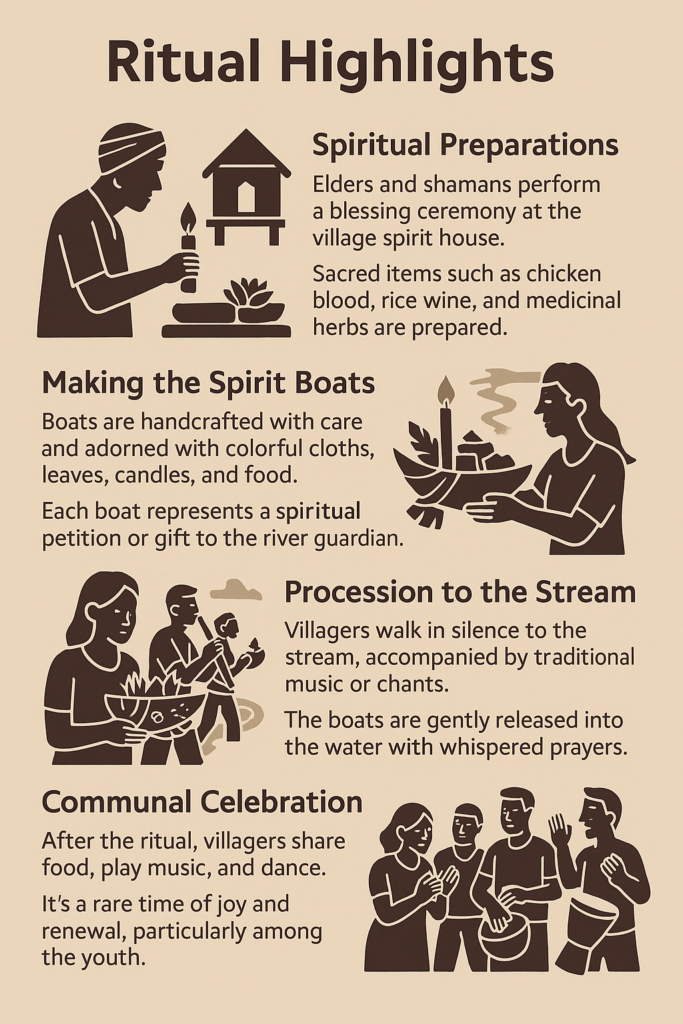
- Spiritual Preparations
- Elders and shamans perform a blessing ceremony at the village spirit house.
- Sacred items such as chicken blood, rice wine, and medicinal herbs are prepared.
- Making the Spirit Boats
- Boats are handcrafted with care and adorned with colorful cloths, leaves, candles, and food.
- Each boat represents a spiritual petition or gift to the river guardian.
- Procession to the Stream
- Villagers walk in silence to the stream, accompanied by traditional music or chants.
- The boats are gently released into the water with whispered prayers.
- Communal Celebration
- After the ritual, villagers share food, play music, and dance.
- It’s a rare time of joy and renewal, particularly among the youth.
Cultural and Spiritual Significance
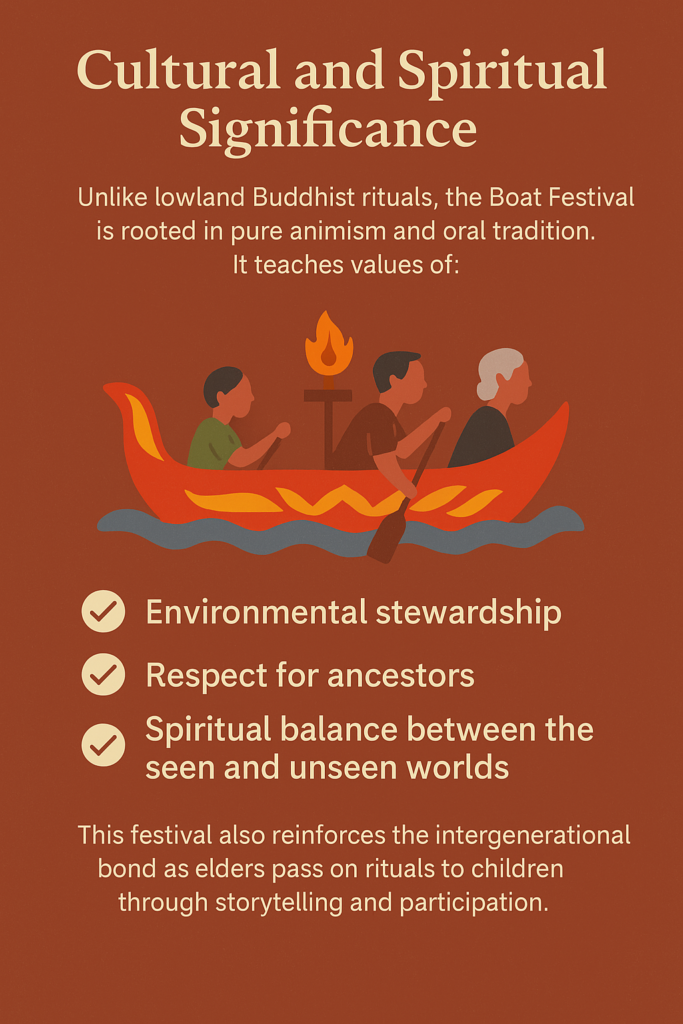
Unlike lowland Buddhist rituals, the Boat Festival is rooted in pure animism and oral tradition. It teaches values of:
- Environmental stewardship
- Respect for ancestors
- Spiritual balance between the seen and unseen worlds
This festival also reinforces the intergenerational bond as elders pass on rituals to children through storytelling and participation.
Modern Challenges
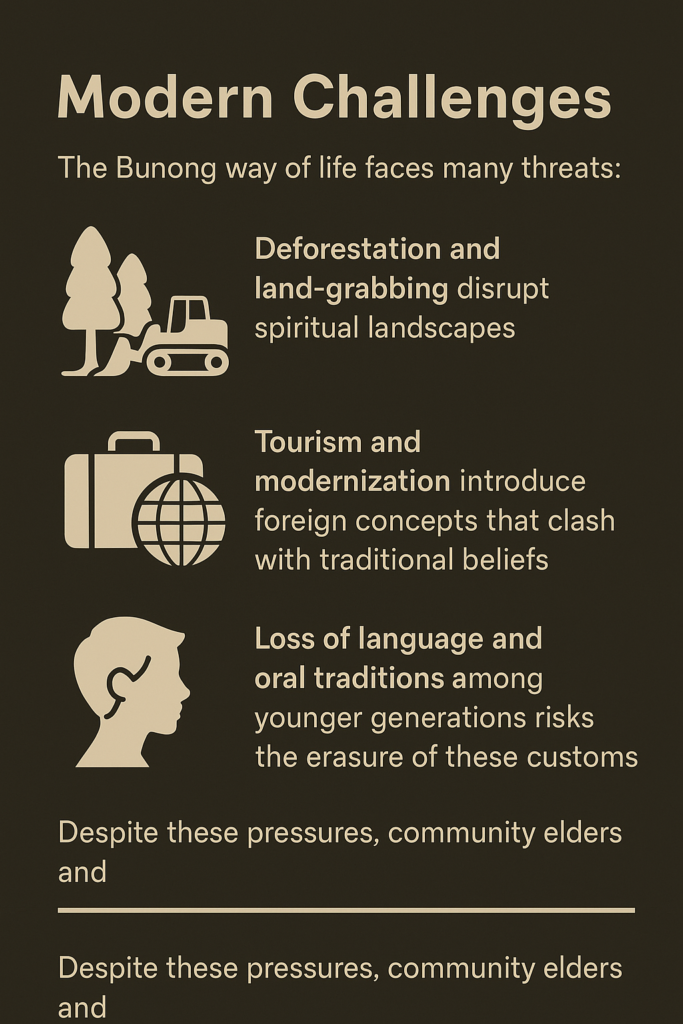
The Bunong way of life faces many threats:
- Deforestation and land-grabbing disrupt spiritual landscapes
- Tourism and modernization introduce foreign concepts that clash with traditional beliefs
- Loss of language and oral traditions among younger generations risks the erasure of these customs
Despite these pressures, community elders and NGOs are working to revitalize and protect Bunong cultural practices, including this sacred festival.
Conclusion
The Bunong Boat Festival is more than a celebration — it is a spiritual compass, guiding a people whose identity is deeply intertwined with nature. As Cambodia embraces the future, preserving such rituals becomes essential to protecting the country’s indigenous soul.


